Along with the three macronutrients (protein, fat, and carbs), there are numerous micronutrients that are also extremely important for overall health. A vitally important category of micronutrients is electrolytes. In this blog post, you’ll learn what they are, find some great sources of electrolytes, and whether you may need supplementation.
What Are Electrolytes?
Electrolytes are minerals that carry an electric charge when dissolved in water (or blood). They are called electrolytes because of that electric charge, which can be either positive or negative.
For instance, regular table salt is known by its chemical name of sodium chloride (NaCl). When dissolved in water, it becomes two separate electrolytes, the positively charged sodium ion (Na+) and the negatively charged chloride ion (Cl–). Both are important electrolytes.
The most common electrolytes in the human body are the following:
- Calcium
- Chloride
- Magnesium
- Phosphorus (phosphate)
- Potassium
- Sodium
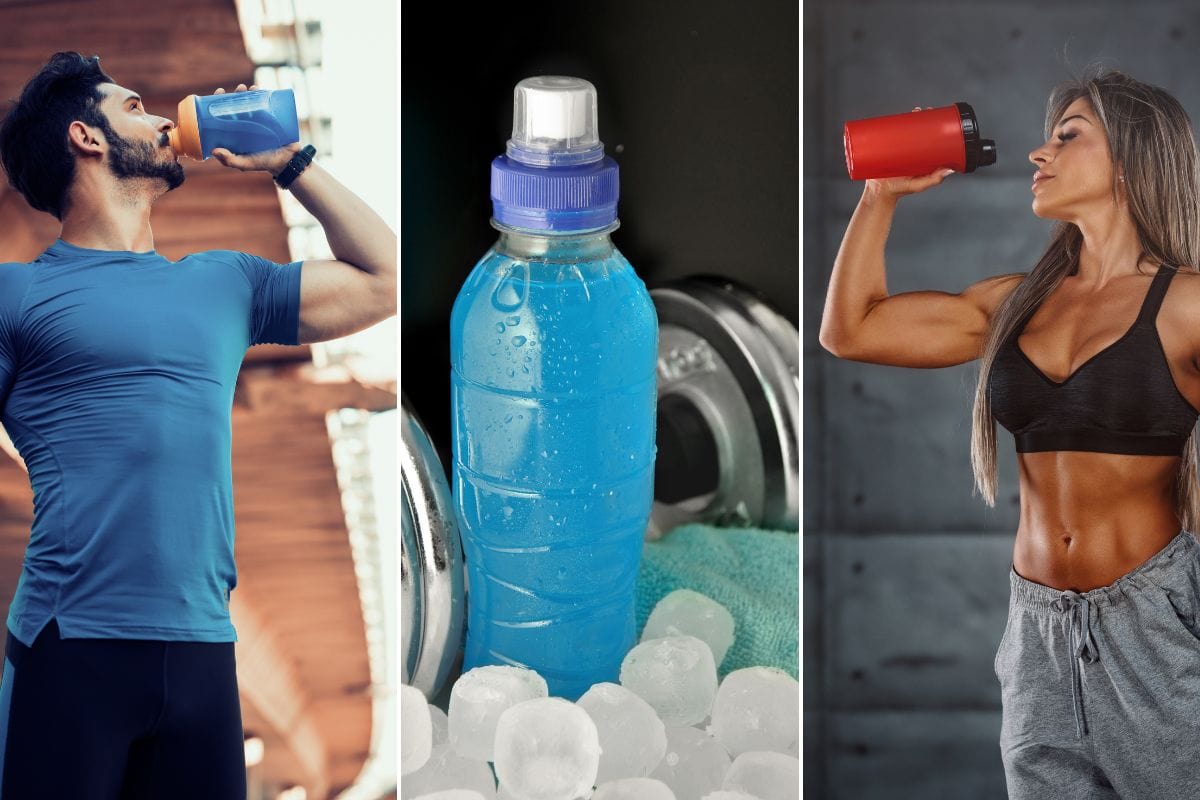
What Do Electrolytes Do?
Electrolytes play crucial roles in various bodily functions, from balancing cell fluids and regulating blood pressure to nutrient metabolism, energy production, muscle contraction, and heart rhythm.
To keep your body functioning optimally, you must consume a certain amount of electrolytes in your diet every day. Some electrolytes, such as phosphorus (phosphate), sodium, and chloride, are consumed in sufficient quantities by almost everyone (sometimes even excessively).
Others, on the other hand, like magnesium, potassium, and calcium, may need to be supplemented by certain people.
Your kidneys balance electrolyte concentrations in fluids. They filter both electrolytes and water from blood. Some are returned back to the blood, while the excess is removed via urine. This, among other things, is why your kidneys are so vital to your overall health.
Disturbances in electrolyte balance—too much (hyper) or too little (hypo)—can result in sometimes severe health problems, including dehydration, hypertension or hypotension, cardiac arrhythmia, muscle cramps and tremors, and seizures.
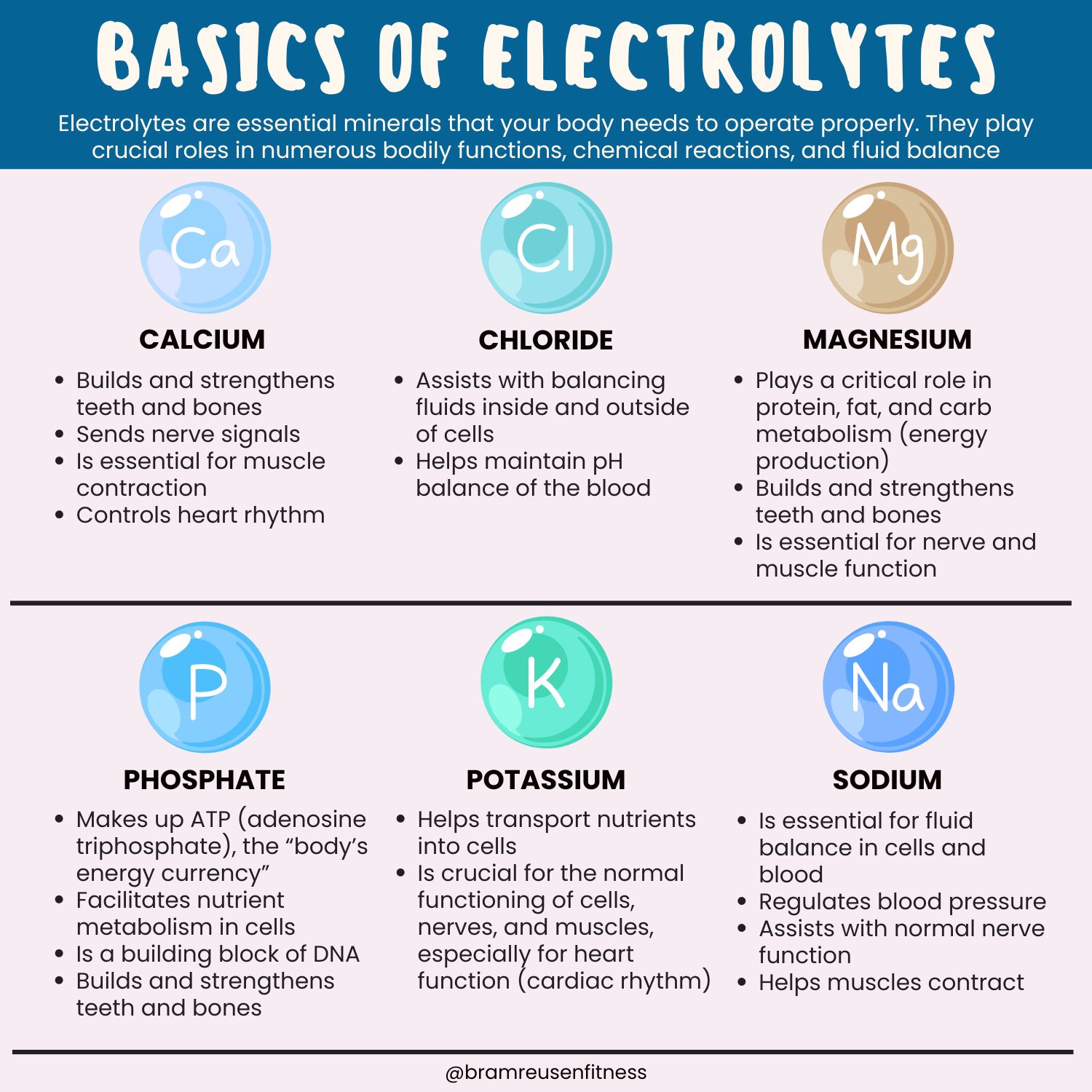
Luckily, a healthy and balanced diet of mainly unprocessed foods will provide sufficient quantities of all electrolytes that are essential for everyday life. (People who exercise a lot, whether it’s cardio or resistance training, or have certain diseases may benefit from supplementation, though. See below.)
What Are Great Sources of Electrolytes?
Below are a bunch of healthy sources of four of the main electrolytes. Note that these lists are not exhaustive by any means, and that there are various other foods that also provide decent amounts of electrolytes.
CALCIUM
- Almonds
- Broccoli
- Cheese
- Chia seeds
- Kale
- Milk
- Sardines
- Soy
- Yogurt
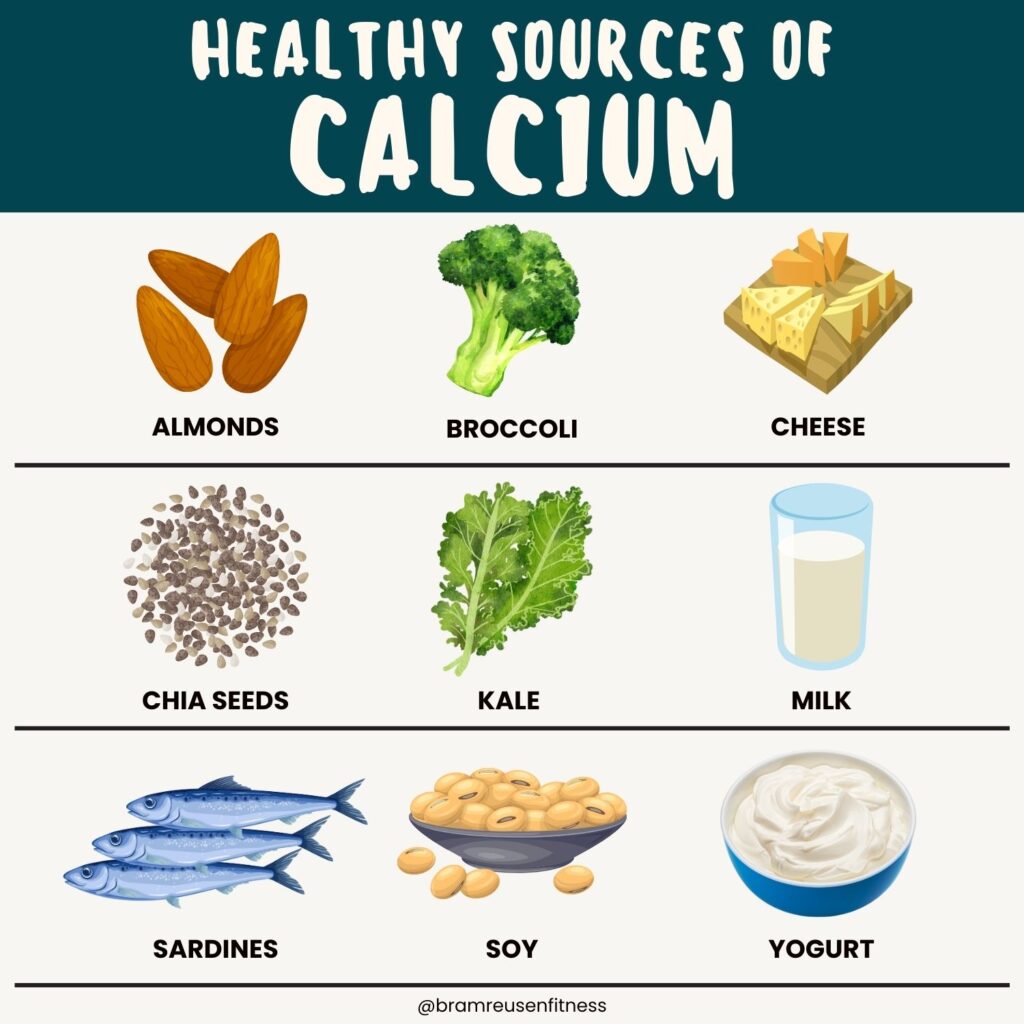
MAGNESIUM
- Almonds
- Cashews
- Chia seeds
- Dark chocolate
- Peanuts
- Pumpkin seeds
- Soy
- Spinach
- Whole grains
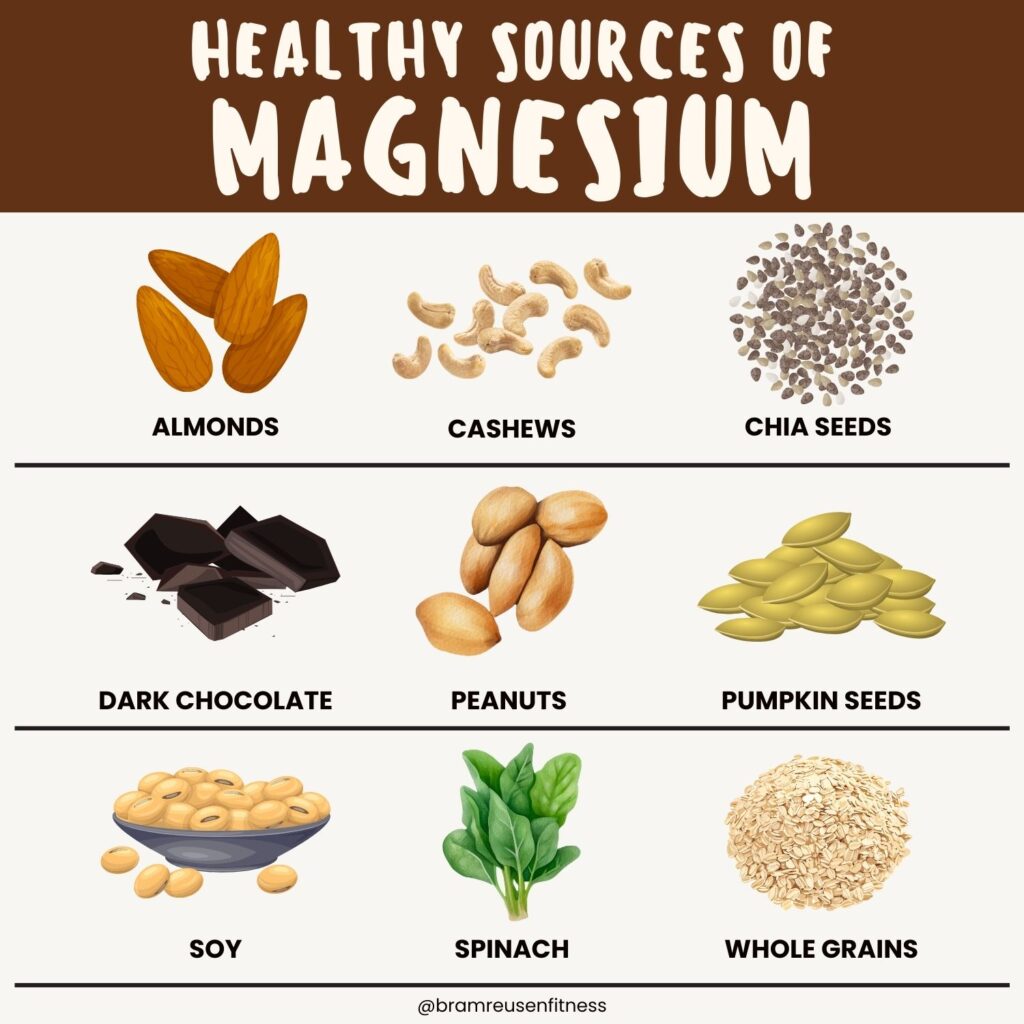
POTASSIUM
- Avocados
- Bananas
- Beets
- Coconut water
- Lentils
- Mushrooms
- Oranges
- Spinach
- Sweet potatoes
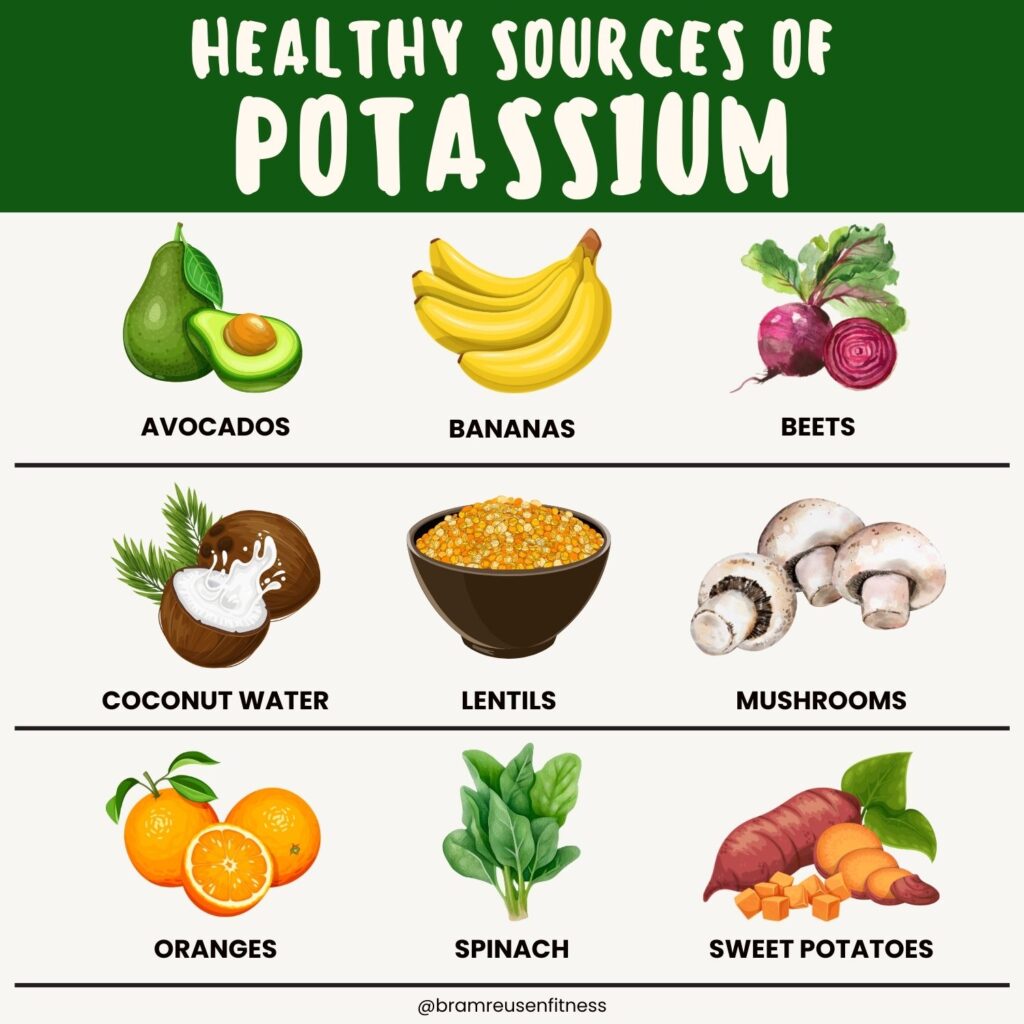
SODIUM
- Canned beans
- Cheese
- Clams/mussels
- Dill pickles
- Olives
- Salted nuts
- Sauerkraut
- Sunflower seeds
- Smoked salmon
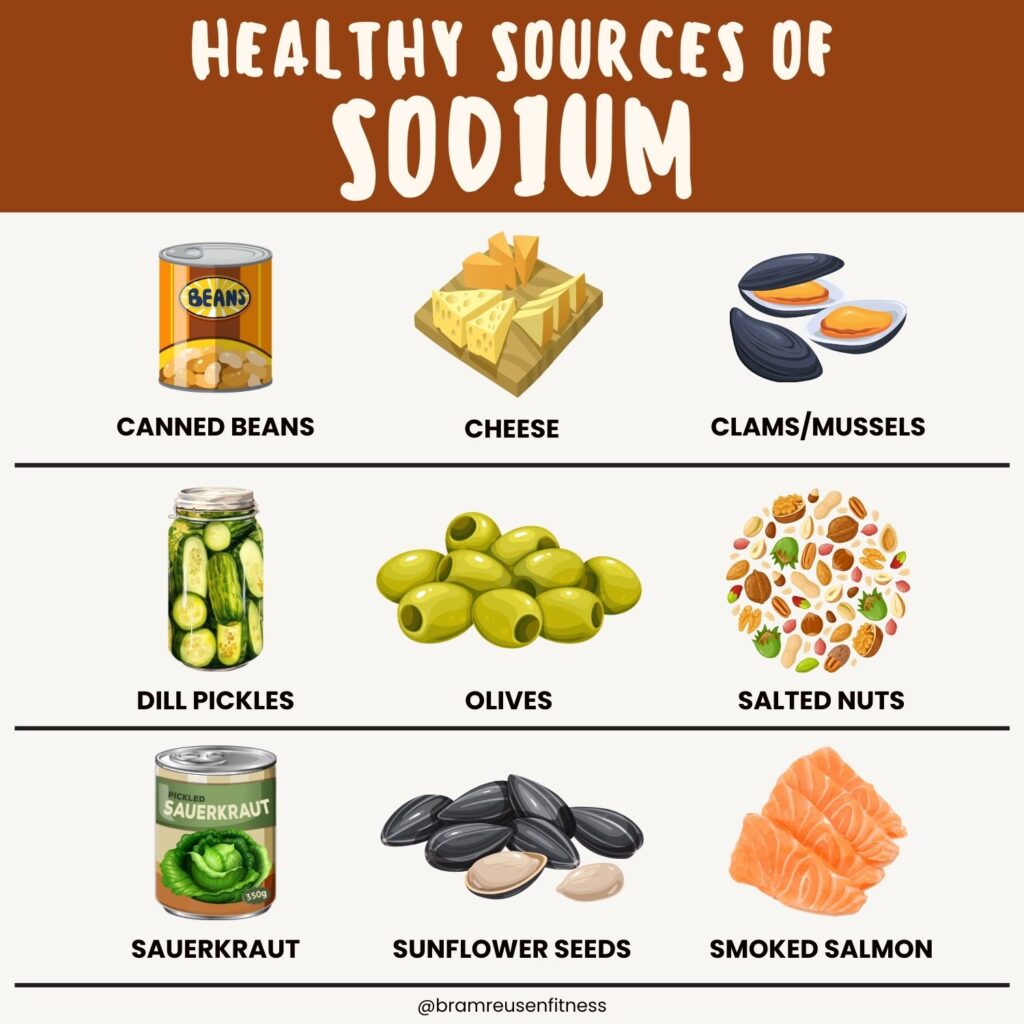
Do You Need to Take Electrolyte Supplements?
Do you need to supplement with electrolytes? Maybe, maybe not. It all depends on your overall lifestyle and, above all, your diet.
It’s entirely possible—and quite easy—to get sufficient amounts of electrolytes by eating foods that are rich in minerals. A balanced diet of whole foods, plenty of cruciferous and leafy vegetables, fresh fruits, nuts and seeds, dairy, fish, and lean meats will provide all the electrolytes you need for day-to-day life.
However, if you exercise a lot, sweat excessively, or lose water in another way (for example, by peeing after consuming diuretic drinks like alcohol or coffee), you could probably benefit from some supplementation.
In fact, supplementation with electrolytes is highly recommended if your workout session lasts longer than one hour. Maintaining proper electrolyte balance is crucial to staying hydrated and to keep your muscles functioning properly, both during exercise and in your everyday life.
There are various sports drinks on the market that contain significant amounts of electrolytes. Electrolyte powders, such as LMNT (my personal favorite), may even be better options, simply due to the fact that they don’t contain any added sugar.
What Are Signs of Electrolyte Imbalance?
As I said above, too many or too few electrolytes can have potentially serious health consequences. Your water intake also influences your electrolyte levels, so it’s important to drink plenty of fluids throughout the day.
Here are some signs of an electrolyte imbalance:
- Confusion
- Dark-colored urine
- Dehydration
- Dizziness
- Fatigue
- Headache
- Irregular heartbeat
- Muscle cramps
- Muscle spasms
- Nausea
For your body to function optimally and to prevent negative health outcomes, it’s important to make sure you take in sufficient electrolytes from your diet.
The sources of electrolytes I listed above are great foods to incorporate in your meals every day. Try to eat two or three from each electrolyte category (calcium, magnesium, potassium, and sodium) on a daily basis.





